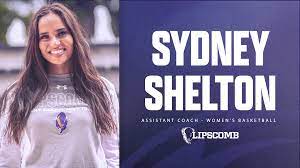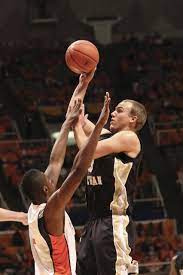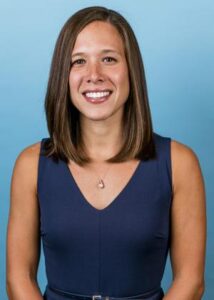The marketplace for college athletes to engage in Name/Image/Likeness (NIL) deals was created last year after the NCAA v. Alston case and now it seems like every college is ready to start spreading the wealth. There are already more than 100 “collectives” either in operation or being formed. They allow alumni/fans/whoever to donate money to assist a specific school in creating opportunities for student-athletes to make some money off of their celebrity. We have reached out to many collectives and will try to interview representatives from as many of them as possible to see how each of them operates. HoopsHD’s Jon Teitel continues our coverage with Tom Dieters of the This is Sparta! NIL collective, who discussed what his group is about and what it has accomplished so far.
Your organization (Charitable Gift America) founded an NIL collective called “This is Sparta!” last January: how complicated was it to create (if at all), and why did you do it? It was very simple to create. I started Charitable Gift America about a decade ago and we are a really sophisticated gift-giving organization. I played baseball at Michigan State and heard about a charity that was getting set up for the University of Texas, so I figured that I would just create 1 myself for the Spartans.
How much of your focus is on basketball compared to football/other sports? When we started it I assumed that football would be the big driver, which it is. What I was surprised to find is that people who were contacting me also wanted to help other programs because they thought that football already had the money that they needed. After that we looked into sports like gymnastics/softball and found that there are people who want to donate money to cover the entire roster rather than just the star PG/QB. We actually spent more time working on gymnastics than on football.
What kind of connection (if any) will your group have with people like Coach Tom Izzo/Athletic Director Alan Haller? I met with Alan recently but we are limited as to how much we can discuss. They have both been extremely cooperative to the point that they can be but would never tell me to do an NIL contract with a specific player. We are trying to amend the current NIL laws to create more transparency and want to make sure that we are going in the same direction as the athletic department.
What kind of deals have you been able to work out so far? The biggest thing we did was for the women’s gymnastics team, which was not even my radar when we began. It was borne out of some conversations I had with administrators and I realized that the biggest impact we could make on a single program was in gymnastics. We gave each of the 19 gymnasts a $5000 contract: we want to build teams more than individuals.
People are obviously free to do whatever they want with their hard-earned money…but do you ever have any second thoughts about whether you should be encouraging your donors to do something else like fight cancer/reduce homelessness? That is exactly what Charitable Gift America is built on: it is completely donor-driven. We do thousands of gifts each year for hospitals/sports programs/etc. If someone wants to give our fund money for a golf/tennis player then that is where it will go. I think it is wonderful that people can designate their money for any charity they want: we never tell donors where to give their money.
How does your own experience in gift planning give you an advantage over other NIL collectives (if at all)? We think that it is a huge advantage. You can start a charity for NIL purposes but it might be hard to maintain your status. The biggest difference is our ability to bring in assets including cash/stocks/real estate/cryptocurrency. Our sophisticated model helps donors with complicated issues that are philanthropic.
Most people assume that collectives will just be giving cash to student-athletes: how does the “life income plan” that you are offering compare to that? Life income plans are our wheelhouse. If a 75-year old donor wants to give us $100,000 while also receiving income for the rest of his life, we can do that, but can also grant the gift value to a charity/NIL designee immediately. The student-athletes receive the money but all our NIL contracts contain a component requiring them to give 5% to charity, which has created a ripple effect around the world. We had 1 young lady who gave money to an elephant preserve in Brazil and another who donated money to a foster home that her little sister lived in before being adopted!
Your goal is to offer student-athletes an “exclusive NIL contract valued at $50,000”: how did you come up with that number, and how many contracts will you be able to offer this fall? I came up with that amount after listening to a sports talk show that mentioned $50,000 was the amount being given to offensive linemen at Texas! Through conversations with leadership at Michigan State we learned they prefer that we do deals for an entire roster rather than just 1-2 profile athletes.
Earlier this month former top high school prospect Emoni Bates (who committed to Michigan State in 2020 before decommitting in 2021) was arrested after sheriff’s deputies found a gun in a car he was driving: how concerned are you about entering contractual relationships with teenagers who might end up behaving badly? It is a concern that we have talked about but there is not a whole lot that we can do about it. Some of our women golfers might qualify for Q School and have to leave their college team we are still obligated to pay them. We are unsure if we can include a morals clause and I do not know if we could even use that to get out of the payments. We certainly do not want to be tied to any criminal activity.
What kind of cool stuff do people get if they became 1 of your top donors? We are not transactional and do not want to be. I did have 1 person who donated his 2 seats to a football game and then we did a drawing for the tickets. I have not had any conversations about “What do I get if I give?” besides getting a charitable deduction.







